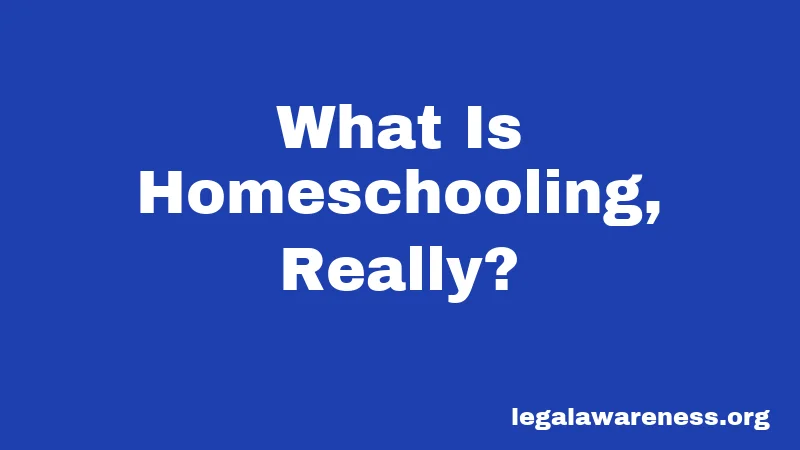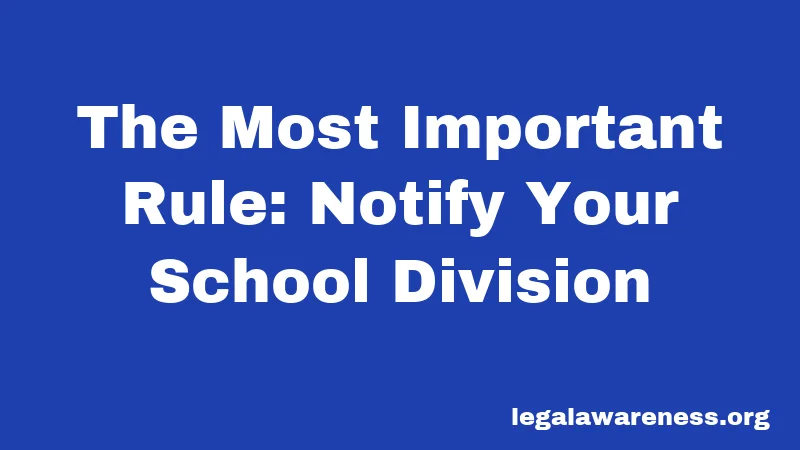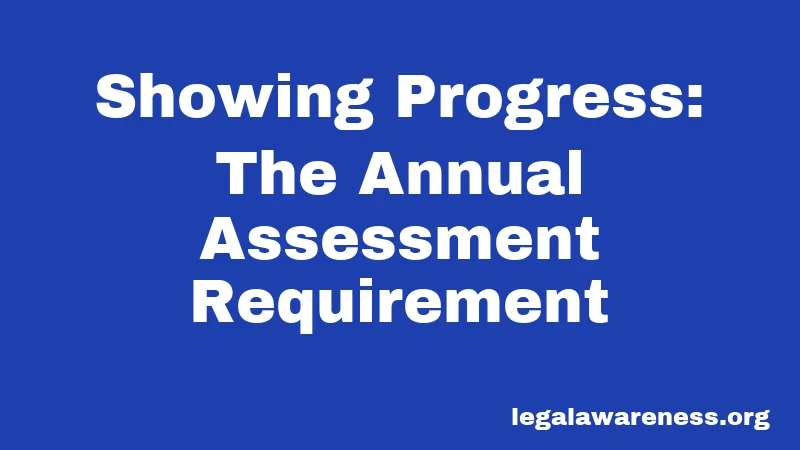Virginia Homeschool Laws in 2026: Your Complete Guide to Getting Started
Most parents don’t realize how much flexibility Virginia gives them when homeschooling. Seriously. The state actually welcomes homeschooling as a legitimate alternative to traditional school. But there are some rules you need to follow.
Here’s the good news: Virginia’s homeschool requirements are pretty straightforward. You don’t need a teaching degree. You don’t need fancy materials. But you do need to understand what the law actually requires. That’s what we’re breaking down today.
What Is Homeschooling, Really?

Okay, so homeschooling is when parents take full responsibility for educating their child at home instead of sending them to public or private school. Sound complicated? It’s actually not.
Virginia law says that homeschooling is “an acceptable alternative form of education” under state law. That means your child is legally excused from attending public school—but only if you follow the rules. The state treats homeschooling seriously. Your job is to make sure you’re doing it the right way.
Who Can Homeschool in Virginia?
Here’s where Virginia gets interesting. You don’t automatically get to homeschool your child. You need to qualify. Virginia gives you four different ways to do this.
Option 1: You Have a High School Diploma or GED
This is the simplest path. If you graduated high school or earned your GED, you qualify. Most parents fall into this category. Easy, right?
Option 2: You Meet Teacher Qualifications
Some parents already have teaching credentials or meet other specific qualifications set by Virginia’s Board of Education. If you’re not sure whether you fit this category, contact your local school division. They can tell you for certain.
Option 3: You Use an Approved Correspondence Course
Some people use full curriculum programs through distance learning or correspondence schools. These programs are pre-approved. If you’re using one, it counts toward your qualification.
Option 4: You Can Provide an Adequate Education
This might sound vague, but here’s what it means. You can show evidence that you’re capable of teaching your child. This could include professional credentials, life experience, or educational background. You’ll need to explain how you meet this standard.
Wondering if this applies to you? Check with your local school division. They can clarify which option works best for your situation.
The Most Important Rule: Notify Your School Division

Virginia requires you to file paperwork. But it’s really not that complicated. Here’s what you need to do.
You must submit a Notice of Intent to your local school division by August 15 of each year. This form tells your superintendent that you’re homeschooling. You can’t skip this step.
What goes in the Notice of Intent? Three main things. First, you state your intent to homeschool. Second, you list the subjects your child will study that year. Third, you provide proof that you meet one of the four qualification options above.
Key Detail: If you start homeschooling after August 15, you still need to notify your school division. Just do it “as soon as practicable.” Within 30 days of starting, you need to be fully compliant with the law.
The Virginia Department of Education provides a sample form for this. You don’t have to reinvent the wheel. Just use their template.
Time Requirements: How Much School Needs to Happen
Here’s what surprises some parents. Virginia has specific hour and day requirements. Your child needs to receive instruction for approximately 180 days per year. That’s about 990 hours total.
Think of it like this. If a public school student goes to school for 180 days, your homeschooled child needs roughly the same amount of instructional time. It doesn’t have to happen in a classroom. It doesn’t have to follow a traditional schedule. But those hours need to happen.
990 hours sounds like a lot, right? Let’s do the math. If your child studies for 5-6 hours per day, five days a week, you’ll hit that requirement naturally. Most homeschooling families don’t stress about this. They just keep good records.
Showing Progress: The Annual Assessment Requirement

This is the part where Virginia actually checks in on your work. Each year, you need to prove your child is learning.
After the school year ends, you must submit evidence of educational progress by August 1. This is non-negotiable. Without it, you’re not in compliance.
Here’s what Virginia accepts as evidence. Option one is a standardized achievement test. Your child takes a test and scores at or above the 4th stanine (that’s the 23rd percentile). Option two is an independent evaluation from a qualified tutor saying your child is making adequate progress.
Option three is an academic assessment approved by your school division. Some school divisions have their own preferred assessments. Call and ask which ones they’ll accept.
Pro tip: Take your assessment early in the year—maybe May or June. That way, if something seems off, you have time to try a different assessment method before the August 1 deadline. Smart planning beats last-minute stress.
What Happens If Progress Isn’t Shown?
Not making adequate progress creates a problem. Let’s be real about this.
If your child doesn’t show progress one year, your school division puts you on notice. You’ll create a remediation plan. You’ll work with the school to improve things. Then you get another year to show improvement.
If progress still hasn’t improved after that second year, home instruction stops. The law requires you to enroll your child in public or private school.
But here’s the important part. You have the right to appeal. If you think the superintendent’s decision is wrong, you can appeal to an independent hearing officer. You have 30 days to request this. Document everything and make your case.
The Vaccination Requirement: Non-Negotiable
Hold on, this part is important. Here’s something many homeschoolers miss.
All children in Virginia—whether they’re in public school, private school, or homeschooled—must comply with immunization requirements. No exceptions. This applies to homeschoolers the exact same way it applies to everyone else.
If your child isn’t vaccinated according to Virginia standards, there’s no workaround for homeschoolers. You still have to comply. You can’t claim homeschooling exempts you from vaccination.
There is one exception. You can get a medical or religious exemption from vaccination. But you have to request it formally. It won’t happen automatically.
Three Different Pathways to Homeschool
Virginia actually gives you three completely different ways to homeschool legally. Each has different rules and different requirements.
Pathway 1: Home Instruction Statute
This is the most popular option. You meet one of the four qualification criteria, file a Notice of Intent, list your subjects, and take an annual assessment. You have flexibility with curriculum. You can teach almost anything. But you need to be organized about documenting progress.
Pathway 2: Religious Exemption
If you have sincere religious beliefs about school attendance, you might qualify for a religious exemption. Here’s the key word: sincere. Virginia is specific about this.
Your beliefs must be “bona fide religious training or belief.” They can’t be based on political views, philosophical opinions, or just your personal moral code. The law specifically excludes those.
If the school board accepts your religious exemption request, your child is excused from school entirely. No testing. No assessment. No Notice of Intent. But you still need to follow immunization requirements.
Pathway 3: Certified Tutor
Do you have a Virginia teaching certificate? Then you can become an approved private tutor. You ask your school district superintendent to approve you as a tutor.
Once approved, you tutor your own children (or anyone’s children). There’s no annual testing required. No curriculum reporting. No assessment deadlines. You just need to provide 180 days of instruction and keep immunization records current.
Curriculum: You’re in Complete Control
Here’s what makes Virginia homeschooling attractive to many families. You choose the curriculum.
Virginia law doesn’t mandate specific subjects. There’s no required textbook list. No state-approved programs you must use. You have genuine freedom to design your child’s education.
That said, here’s a smart approach. Look at Virginia’s Standards of Learning (SOL). These are the standards public schools use. You don’t have to follow them exactly, but they’re a helpful reference. They show you what students typically learn at each grade level.
When you submit your curriculum list in your Notice of Intent, you’re just telling the school division what subjects you’ll cover. They won’t judge your choices. They won’t tell you to change anything. It’s purely informational.
You can use traditional textbooks, online programs, library resources, or real-world experiences. A child learning woodworking? That’s science and math combined. Cooking with your child? Math, science, and life skills happening at once.
Not sure what curriculum to use? Honestly, this is probably the most overwhelming part of homeschooling for new parents. Check out online reviews. Talk to other homeschoolers. Try different approaches until something clicks with your family.
High School Homeschooling: Creating a Diploma
Here’s something most people don’t realize. When homeschooling in Virginia, you create your child’s diploma.
Public and private schools issue diplomas through their institutions. Homeschooled students don’t get a school diploma. You design the course of study, track the grades, and create a transcript and diploma yourself.
This sounds scary, but stay with me here. It’s actually not that complicated.
Look at what public schools require for graduation. Virginia’s public schools have graduation requirements. You can use those as a guide if you want. But you’re not locked into them. You might want your homeschooled student to take AP-style classes. Or specialized programs. Or focus areas that interest them.
Create a transcript showing what classes they completed, what grades they earned, and when they completed them. Include core subjects like English, math, science, and history. Add electives that match your child’s interests or goals. Then issue a diploma that represents their completion of your homeschool program.
Keep good records. Colleges see these transcripts. Make them clear, professional, and honest about what your child accomplished.
What You Should Know About College and Sports
Here’s a reality check. Virginia homeschoolers have both opportunities and limitations.
For college? Actually, many colleges look favorably at homeschoolers. They see personalized education, self-direction, and tailored learning. But you need strong documentation. Create detailed transcripts. Take standardized tests to show academic achievement. Get letters of recommendation if possible.
For sports, though? There’s a limitation. The Virginia High School League (VHSL) doesn’t allow homeschool students to participate in VHSL athletic activities. That’s the rule.
But wait—there might be a workaround. Some homeschoolers enroll in specific classes at a public school while staying homeschooled for most subjects. This might make them eligible. Contact your local school district to ask about part-time enrollment options. Each district handles this differently.
What About Documentation and Record-Keeping?
You need to be organized. Seriously.
Keep attendance records showing 180 days or 990 hours of instruction. Write down what you taught, when you taught it, and what materials you used. Store your child’s assessments, test scores, or evaluation letters. Keep immunization records accessible.
You might be asked to show these records. Your school division can request documentation to verify compliance. Keep everything in one organized place—physical or digital, whatever works for you.
Make it part of your system from day one. Don’t wait until August when your assessment is due to scramble for records. Document as you go.
Penalties for Non-Compliance
Let’s talk about what happens if you don’t follow the rules.
Violating Virginia’s homeschool law is a Class 3 misdemeanor. That’s serious. A misdemeanor conviction carries consequences. We’re not talking just a warning letter.
But here’s the thing: the school division will work with you. They want you to succeed. They want your child to be educated. If you miss the August 15 deadline or forget to file assessment results, your superintendent will usually reach out and give you a chance to correct it.
Don’t ignore official communications from your school division. If they say your homeschool isn’t in compliance, take it seriously. Meet with them. Create a remediation plan. Show you’re committed to following the law.
The penalties exist because education matters. Virginia takes the responsibility of educating children seriously. You should too.
Your Step-by-Step Checklist
Okay, let’s break this into actual steps you need to take.
Step 1: Choose your homeschooling pathway. Decide whether you’ll use the home instruction statute, religious exemption, or certified tutor option.
Step 2: Verify you meet the qualifications. For home instruction, make sure you have the required credentials or can prove your ability to teach.
Step 3: Create your curriculum list. Decide what subjects your child will study.
Step 4: File your Notice of Intent. Submit it to your local school division by August 15. Include your qualification proof and curriculum list.
Step 5: Keep meticulous records. Track instructional time, subjects covered, and activities completed.
Step 6: Plan for assessment. Choose which assessment method you’ll use before the school year ends.
Step 7: Submit progress evidence. By August 1 following the school year, send in your assessment results or evaluation letter.
Step 8: Get your acknowledgment. Your school division will confirm compliance. File this with your records.
Then repeat every year. Once you do it once, the rhythm becomes clear.
Questions Parents Ask About Virginia Homeschooling
Can I homeschool my high school student to get a cheaper diploma?
Technically, yes. You can homeschool. But understand that colleges evaluate homeschool diplomas differently. You’ll need strong transcripts, test scores, and documentation to show rigor. A cheap diploma won’t help your student get into college.
What if I’m using an online school—does that count as homeschooling?
It depends. If the online school is accredited and structured as a distance learning program, your child might technically be enrolled in that school rather than homeschooled. Check with your school division. Some online programs are considered home instruction. Others aren’t.
Do I need a teaching license to homeschool in Virginia?
No. Most homeschoolers have a high school diploma. That’s enough. Teaching certificates are only required for the certified tutor pathway, which is just one option.
Can my homeschooled child attend public school classes?
Many school divisions allow part-time enrollment where a student attends certain classes while being homeschooled for others. Call your district to ask about their policy. It varies by location.
What if my child isn’t ready to be assessed? Can I delay?
Basically, no. The August 1 deadline is firm. If you’re concerned about readiness, try an assessment method that plays to your child’s strengths—maybe an independent evaluation instead of a standardized test.
Can I homeschool without notifying my school division?
Not legally. You must file a Notice of Intent by August 15. This is non-negotiable.
Is there a specific curriculum I have to use?
No. Virginia doesn’t mandate curriculum. You have complete freedom to choose or create your own.
What if we move to a different county during the school year?
Notify your new school division as soon as practicable. You have 30 days to come into full compliance with their specific requirements. They might have slightly different procedures or preferences, so reach out immediately.
Important Contact Information
Virginia Department of Education – Home Instruction Page www.doe.virginia.gov/parents-students/for-parents/home-instruction
Call your local school division’s main office and ask for the homeschool coordinator. Each division has someone managing home instruction compliance.
Home Education Association of Virginia (HEAV) heav.org
This is your best resource. HEAV offers guidance, updates on legal changes, and community support. They understand Virginia homeschooling inside and out.
Home School Legal Defense Association (HSLDA) hslda.org
HSLDA provides detailed legal resources and can offer legal support if you have disputes with your school division.
Final Thoughts: You’ve Got This
Here’s the real talk. Homeschooling in Virginia is totally doable. The state actually supports it. You’re not fighting an uphill battle with overly restrictive laws.
The key is understanding the requirements, staying organized, and documenting your work. File your Notice of Intent on time. Keep good records. Submit your assessment results by the deadline. That’s really the whole formula.
Millions of children have been successfully homeschooled in Virginia. Your child can be next. Stay informed, stay compliant, and when in doubt, reach out to your school division or organizations like HEAV. They want to help you succeed.
Good luck with your homeschooling journey. You’re taking on something big, and that’s worth respecting.
References
Virginia Department of Education – Home Instruction
Virginia Code § 22.1-254.1 – Home Instruction Requirements
Home Education Association of Virginia (HEAV)
Home School Legal Defense Association – Virginia Homeschool Laws
